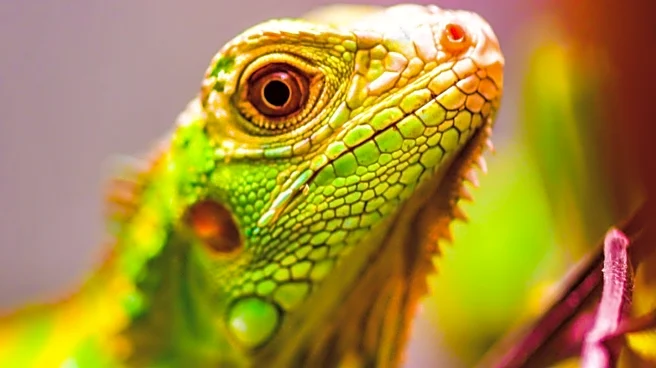What's Happening?
In April 2024, the University of the West Indies in Jamaica repatriated an extinct Jamaican giant galliwasp from the University of Glasgow in Scotland. This event marked the first repatriation of a natural history specimen to the English-speaking Caribbean. The galliwasp, last seen in the 1840s, is now part of Jamaica's national flora and fauna collection. The repatriation addresses the historical context of European colonialism and the cultural extraction that occurred during that period.
Why It's Important?
The repatriation of the Jamaican giant galliwasp is a significant step in reclaiming cultural identity and addressing the historical injustices of colonialism. It highlights the importance of returning cultural and natural heritage to their countries of origin, fostering a sense of identity and ownership. This event also underscores the broader movement towards restitution and reparative justice, as countries seek to recover cultural items taken during colonial times. The return of the galliwasp provides an opportunity for further research and education on Jamaica's natural history.
Beyond the Headlines
The repatriation of natural history specimens like the Jamaican galliwasp challenges traditional definitions of cultural property, which often exclude flora and fauna. This event prompts a reevaluation of what constitutes cultural heritage and the ethical considerations involved in its restitution. It also raises questions about the role of universities and institutions in facilitating repatriation efforts, especially when national policies may hinder such processes. The return of the galliwasp serves as a reminder of the ongoing need for dialogue and collaboration in addressing historical inequities.










